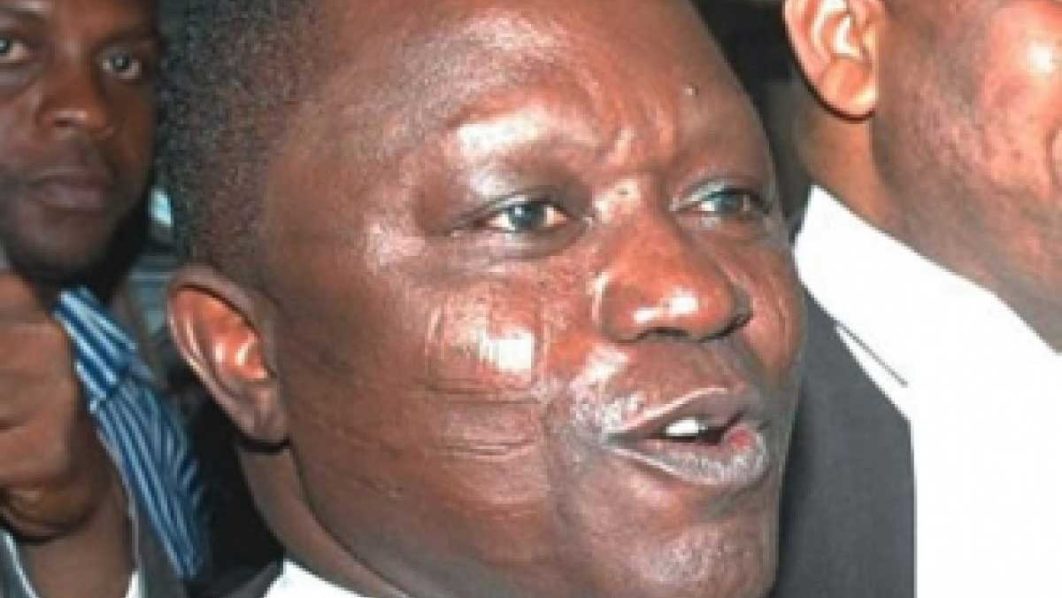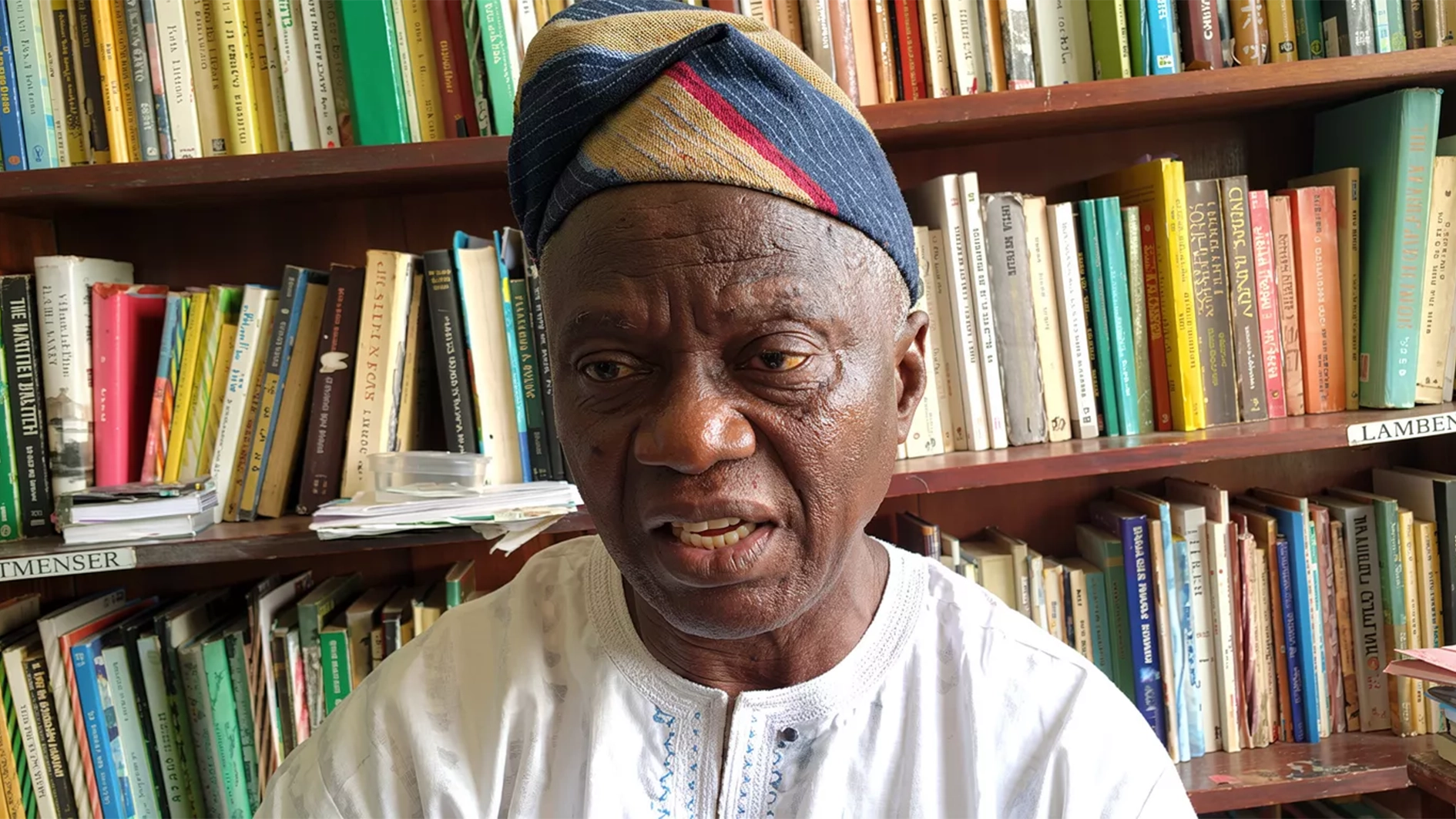
Chief Niyi Akintola is a Senior Advocate of Nigeria (SAN) and former Deputy Speaker of the Oyo State House of Assembly in the Third Republic. In this interview with ROTIMI AGBOLUAJE, he urged the new Chief Justice of Nigeria (CJN), Justice Kudirat Kekere-Ekun to correct the public perception of judicial officers and restore discipline in the bar and the bench.
The Federal Government recently announced a 300 per cent increment in the salary of judicial officers. What do you have to say about this?
We have been on it for a while. Before now, only former President Olusegun Obasanjo has done some increase for judicial officers. Salaries of executive and legislative members have been increased, but for years, salaries of judicial officers were not increased. That has done damage to the integrity of judicial officers. To God be glory, it is commendable in President Bola Tinubu’s administration. Under Tinubu’s administration as governor, salaries of judicial officers were increased too. Justice Mohammed Uwais (Retd) came out publicly to commend Tinubu and charged other states to emulate him. It entrenched discipline and independence. The recent increase will encourage judicial officers.
Can states pay that increment?
Our judicial system is centralised, even though the centralisation is an aberration. All the salaries come from the National Judicial Council (NJC). That was introduced under the Abacha regime because of the attitude of the state governments.
What are the expectations of the legal community from Justice Kudirat Kekere-Ekun?
She has her job well cut out for her. Nobody should expect anything less. She is from a good home, maritally and biologically. She does her work without publicity or flamboyance. She is a woman of impeccable character. She is unassuming, not giving to frivolities.
What form of reforms do you expect from her?
First, discipline at the bar and bench is key. Indiscipline is very rampant at the bar. Another one is the issue of corruption. She needs to correct the perception of the public within judicial officers. There must be cooperation between the bar and the bench. You cannot have a better judiciary if the bar is bad. Judicial members are drawn from the bar. The CJN is expected to stamp her authority on the bar and the bench. She has seen it all.
Let’s talk about the verdict delivered by the Supreme Court on local government autonomy. Many have spoken on the judgment. How will you react to it?
It has come and gone. We thank God for President Tinubu. We thank God for the Attorney General of the Federation and the Supreme Court. Even though the judgment itself has created some problems, which many people did not anticipate. It is now a subject of controversy within the country. People have been asking whether it was right for the Supreme Court to amend the provision of Section 162 without the National Assembly doing so. My short answer to that is that the Supreme Court is not just a court of law. It’s also a court of policy. So, speaking of Section 162 (6), even though many people didn’t expect it, it is not an abnormality. I mean, the Supreme Court is competent to make a firm decision when the interest of the country is at stake.
In the first place, it was a popular judgment. People have been expecting something like that. But what people don’t realise is that it’s not only the state governors that have been taking local governments’ funds. Federal Government agencies are not left out. People have not been addressing the fact that agencies of the government too have been taking the money. The practice of many of the governors taking local government funds didn’t start today. You have to look at the historical background of the issue. This local government system we are operating was formulated through the Ibrahim Dasuki Reform of 1976 during the Olusegun Obasanjo military regime. Obasanjo had good intentions but never anticipated the problems that came with it.
There is no federal system of government in the world that has three tiers of government. So, it is normally two tiers. But in the wisdom of the military, they imported it into the 1999 Constitution – Section 7, which tends to create a kind of anomaly within the federal system. Having said that, it must be emphasised that the constitution we are operating recognises three lists. They are the Exclusive Legislative Lists, the Concurrent Legislative Lists, and the Residual Legislative List. The Residual list is not written. This was left for something uncovered by the present constitution, which the state can take advantage of within the context of the 1999 constitution.
But having said that, the state governments didn’t even stop at taking local government money. All those areas that are meant for the local government to operate, the state and the federal governments took over them. That has been more damaging than the local government funds. For instance, issues of liquor licences, markets, motor parks, and primary school education have been taken over by the states and Federal Government.
What is the business of the Federal Government in primary school education?
But there’s an abnormal body called the Universal Basic Education Commission (UBEC) in Abuja that regulates and controls primary school education in the federation. UBEC will sit down in Abuja and be making decisions for the whole country. When I was in primary school, I had six years of primary school education. My counterparts in the North had seven years. But now, somebody somewhere thought that what’s happening in Sokoto State should be happening in Oyo State and other parts of the country. That shouldn’t be in a federation. The body intends to build about 100,000 schools for local governments, without knowing their needs. So, primary school education which is supposed to be the function of local governments has been taken over by a Federal Government agency called UBEC. The body does so many things on behalf of the states. Those things are not for free; they deduct the money from the source out of the local government funds.
Sometimes, the Minister of Agriculture will wake up and want to buy tractors for the local government without asking whether they need the tractors or not. The Minister will buy all of them and deduct the money from the source. The Ministry of Health will buy vaccines for the local governments without asking for their needs and priorities. They draw the money from the source.
Now, the state government has taken over markets, parks, liquor licences, and number plates. It’s so funny that a state like Ekiti went and enacted a law empowering the housing corporation of the state to name streets. I’m in court against the Ekiti State Housing Corporation over the issue.
Now, what’s the benefit of this Council fiscal autonomy verdict?
At least, the common man in the grassroots will know how much is being given to the local government and he’ll be able to hold the local government chairman accountable. However, don’t forget that there’s a principle that says that the oppressed will continue to feel happy that he’s being oppressed. If the money comes now to the local government, I foresee that the local government chairmen will go to their governor, and ask the governor, ‘What do we do with this money?’ This is because they are happy to be oppressed. They are used to it.
To that extent, the benefit is that the money will come to the local government without the governor tampering with it, at least, on paper. On the flip side, the adverse effect of it is that we are likely to have zero allocation again for some local governments. We have passed through this before.
What do you mean by zero allocation?
The local government in urban areas will be getting zero allocation because the salaries of all workers, teachers and others that are being deducted from the source by the Joint Account and Allocation Committee (JAAC) will stop. Those local governments in the rural areas will be the beneficiaries because they will have a surplus. We went through that here in Oyo State before.
Can you elaborate more on this?
In the 80s in Oyo State, Ibadan Municipal Council was getting zero allocation while local governments in Oke-Ogun were smiling to the bank. This is because 92 per cent of all the primary school teachers in the state are in Ibadan. After paying this money to the local governments directly, those local governments in municipal cities like Kano, Ibadan, and Sokoto were not able to pay workers because there was too much burden on them. When the issue became riotous in the 80s, I was contacted by the Chairman of the local government. I advised him to ask workers who are not from his local government to go back. So, he did that. The military governor then ordered his arrest. Because it was happening in Oyo, Kano and Sokoto, the military governors had to think of how to find a way out. That was when they introduced this JAAC. All the expenses of all the local governments like teachers’ salaries, health workers’ salaries, and ad-hoc staff emoluments were paid from the source. All of them were bearing the burden. It had been in existence before the 1999 Constitution, but it has become contentious. Now, when the money starts coming directly to the Councils, local governments like my own will benefit.
Is it not possible to redistribute staff across local governments?
How do you distribute them to a place where they don’t need them? Another anomaly is that, despite the abolition of the local government service commission, some states operate local government service commissions illegally. In a state like Ekiti, the local government service commission still exists. This is not contained in the 1999 constitution. It was there in the 1979 constitution, but it is not there now.
Some people believe this may empower the Federal Government to have control over local governments. Is that not antithetical to federalism?
It is possible. However, all of us – the civil societies, professional associations, the media and others – will keep on interrogating the government over the issue. I was discussing it with two ministers and I pointed out this problem.
One of them said there was a problem. There is no way we can sustain the system if the current system still exists where somebody will sit down in the State Secretariat in Ibadan and post workers to Ajaawa in the Ogbomoso axis of Oyo State. Let the local government employ the staff they need. For instance, there’s a Director of Agriculture for Ibadan North LG. Where is the farm? They kept collecting money and these are Grade Level 16 officers.






